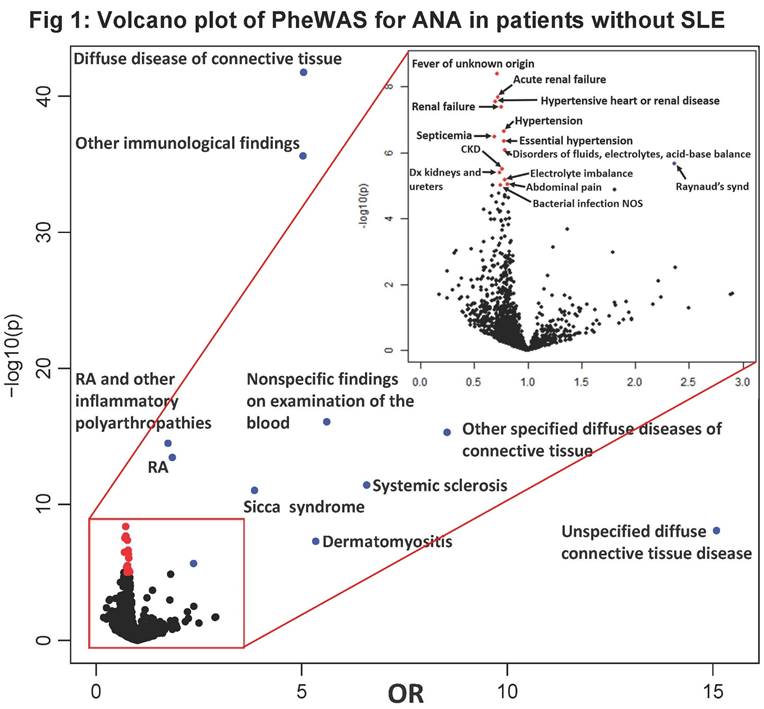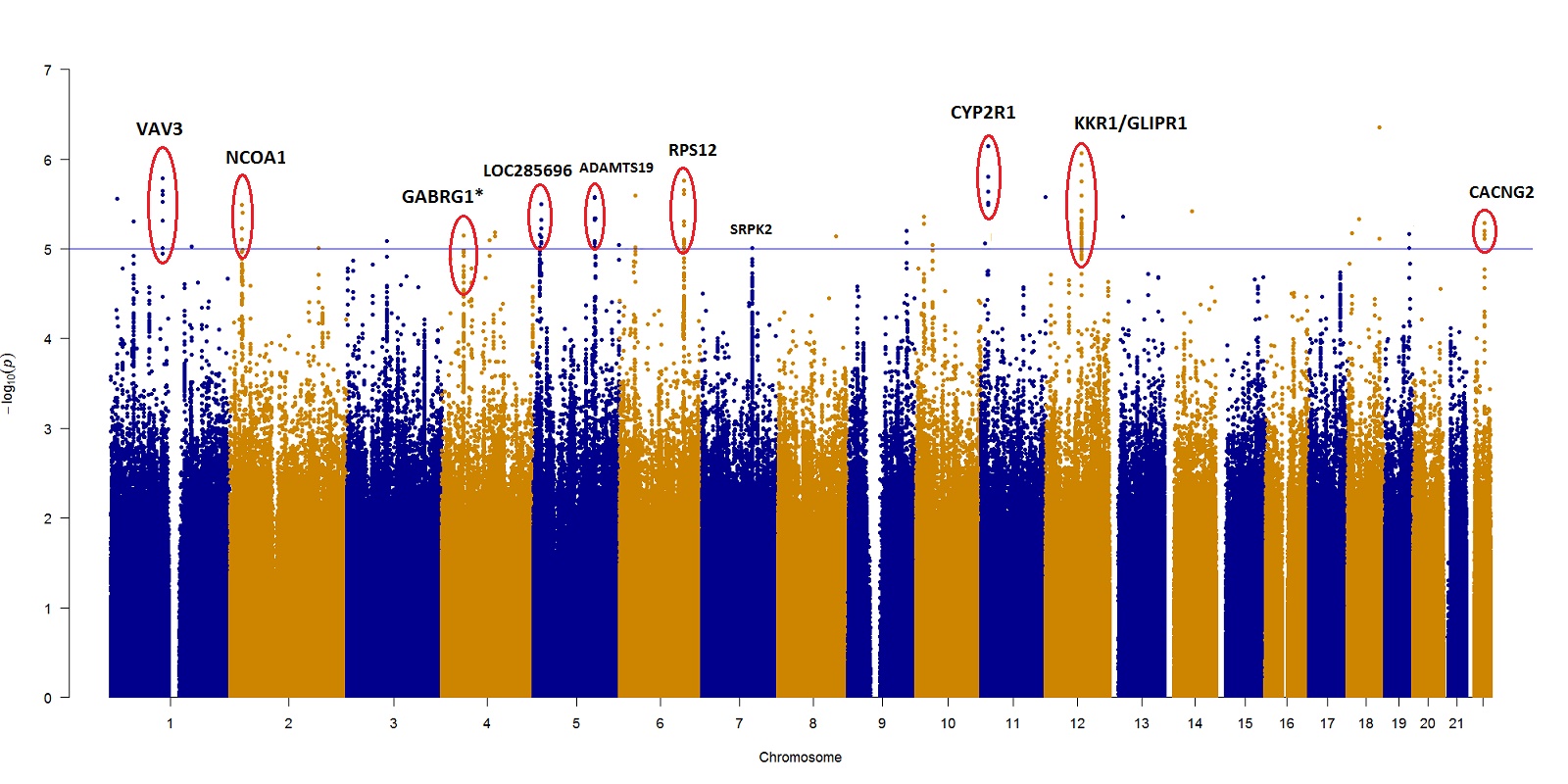Session Information
Date: Tuesday, October 23, 2018
Title: Systemic Lupus Erythematosus – Etiology and Pathogenesis Poster III
Session Type: ACR Poster Session C
Session Time: 9:00AM-11:00AM
Background/Purpose: ANAs are almost always present in systemic lupus erythematosus (SLE), but they are also present in ~12-20% of the population. A positive ANA (ANA+) can precede the onset of SLE, but for the vast majority the clinical consequences are unknown. In animal models, naturally occurring ANAs can protect against renal disease. The genetics of SLE are well established but those of ANA+ are poorly defined. We hypothesized that ANA+ is associated with increased risk of SLE-like phenotypes and that ANA+ and SLE share the same genetic structure.
Methods: Using BioVU, a DNA biobank linked to de-identified electronic medical records, we performed a phenome wide association study (PheWAS) and a genome wide association study (GWAS) in patients who had ANA tested as part of clinical care and had genotypes available. Phecodes were assigned using standard hierarchical grouping of ICD9 codes, and logistic regression performed adjusting for age, race and sex. Patients with an SLE phecode (645.4*) were excluded from the PheWAS. For the GWAS analysis, genotyping was performed using the MEGA Illumina Chip with standard quality control procedures and SNPs with a MAF ≥ 1% included. Genetic associations with ANA+ were analyzed using an additive model with logistic regression adjusted for age, sex, and top three principal components.
Results: PheWAS analysis included 10097 patients of whom 4406 were ANA+. ANA+ was associated with increased risk for several autoimmune disorders (e.g., rheumatoid arthritis, systemic sclerosis) but with reduced risk for renal and hypertensive disorders (Fig. 1). The GWAS analysis included ~8.6 million SNPs and 5085 patients, 2139 of whom were ANA+. None of the associations were GWAS significant, but 118 SNPs had a P<1×10-5. None of these SNPs were previously associated with SLE but mapped to loci (VAV3, NCOA1, LOC285696, ADAMTS19, RPS12, CYP2R1, KKR1 and CACNG2) associated with immune thyroiditis, nephropathies, cancer, vitamin D levels, metabolic and psychiatric phenotypes (Fig. 2).
Conclusion: We found that ANA+ in patients without SLE had the expected association with other autoimmune disorders; however, there was an unexpected association with reduced risk of renal and hypertension phenotypes. There was no strong overlap in the genetic structure of SLE and ANA+.
To cite this abstract in AMA style:
Kawai V, Mosley J, Feng Q, Wei WQ, Carranza Leon D, Chung CP, Ihegword A, Stein CM. Pleiotropy of a Positive Antinuclear Antibody (ANA) Test: A Phewas and GWAS Approach [abstract]. Arthritis Rheumatol. 2018; 70 (suppl 9). https://acrabstracts.org/abstract/pleiotropy-of-a-positive-antinuclear-antibody-ana-test-a-phewas-and-gwas-approach/. Accessed .« Back to 2018 ACR/ARHP Annual Meeting
ACR Meeting Abstracts - https://acrabstracts.org/abstract/pleiotropy-of-a-positive-antinuclear-antibody-ana-test-a-phewas-and-gwas-approach/


